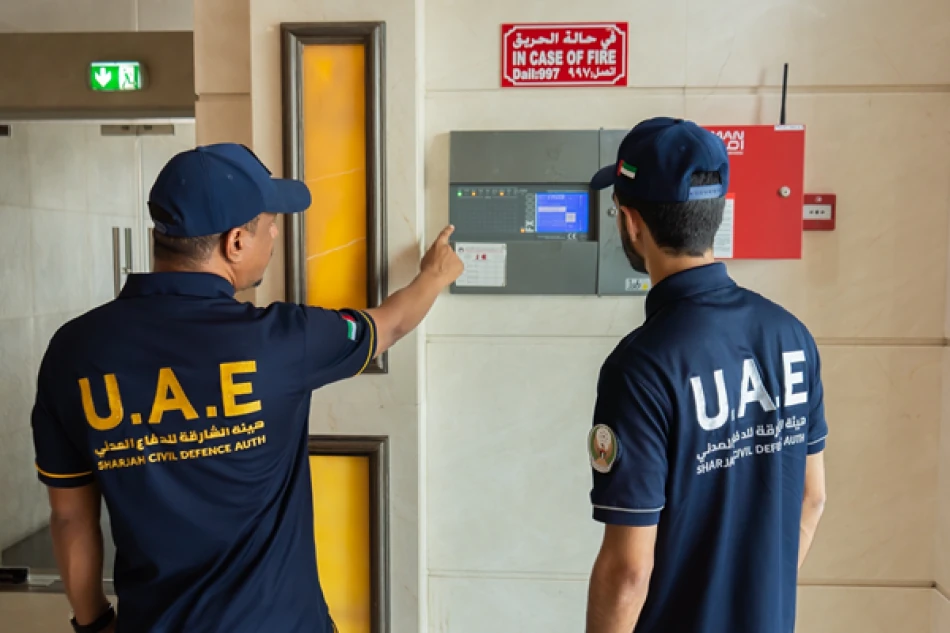
Sharjah Civil Defense Completes Over 18,000 On-Site Inspections in First Half
Sharjah Intensifies Fire Safety Inspections with Nearly 19,000 Building Checks in Six Months
Sharjah's Civil Defense Authority has dramatically escalated its building safety oversight, conducting 18,714 inspections across the emirate in the first half of 2025—a comprehensive campaign that signals the UAE's growing emphasis on preventive safety measures amid rapid urban development. The initiative reflects a broader regional trend toward proactive risk management as Gulf cities expand their infrastructure and population density increases.
Inspection Strategy Balances Routine and Surprise Visits
The authority's approach combines systematic oversight with unexpected compliance checks, deploying 5,408 routine inspections alongside 13,306 surprise visits. This dual strategy ensures both planned maintenance verification and real-time compliance monitoring across residential, commercial, and industrial facilities throughout Sharjah.
The routine inspections focus on verifying the efficiency of fire prevention systems, alarm functionality, and firefighting equipment readiness. Meanwhile, surprise visits target immediate compliance with safety regulations, creating a continuous pressure for property owners to maintain standards rather than prepare only for scheduled reviews.
Regional Context: UAE's Safety-First Urban Development
This intensive inspection regime positions Sharjah alongside other UAE emirates that have prioritized building safety following lessons learned from high-profile incidents across the region. The approach mirrors Singapore's rigorous building safety protocols and reflects the Gulf states' evolution from rapid construction phases to mature safety oversight systems.
Colonel Ibrahim Said Al Ali, Director of Civil Protection and Safety at Sharjah Civil Defense Authority, emphasized that the inspections form part of a comprehensive protection system. The authority's strategy extends beyond mere regulatory compliance to include immediate education, real-time auditing, and prompt correction of identified issues.
Economic and Investment Implications
For property developers and investors, this heightened scrutiny represents both challenge and opportunity. While compliance costs may increase in the short term, the systematic approach to safety standards enhances long-term asset values and reduces insurance liabilities. International investors increasingly factor regulatory consistency and safety infrastructure into their Gulf market assessments.
The emphasis on preventive measures rather than reactive responses also signals institutional maturity that could attract risk-averse international businesses and residents seeking stable, well-regulated environments for operations and residence.
Community Engagement as Strategic Foundation
Al Ali highlighted that resident and stakeholder cooperation forms a fundamental pillar in achieving the authority's strategic objectives. This community-centric approach distinguishes the UAE model from purely regulatory frameworks, creating shared responsibility for safety outcomes.
The authority's focus on immediate correction and education during inspections, rather than purely punitive measures, suggests a collaborative relationship with property owners and managers. This approach typically yields better long-term compliance rates and fosters a genuine safety culture rather than mere regulatory adherence.
The scale and intensity of Sharjah's inspection program—averaging over 100 building visits daily—demonstrates the emirate's commitment to establishing itself as a regional benchmark for urban safety standards, potentially influencing similar initiatives across the broader Gulf Cooperation Council region.
Most Viewed News

 Layla Al Mansoori
Layla Al Mansoori






